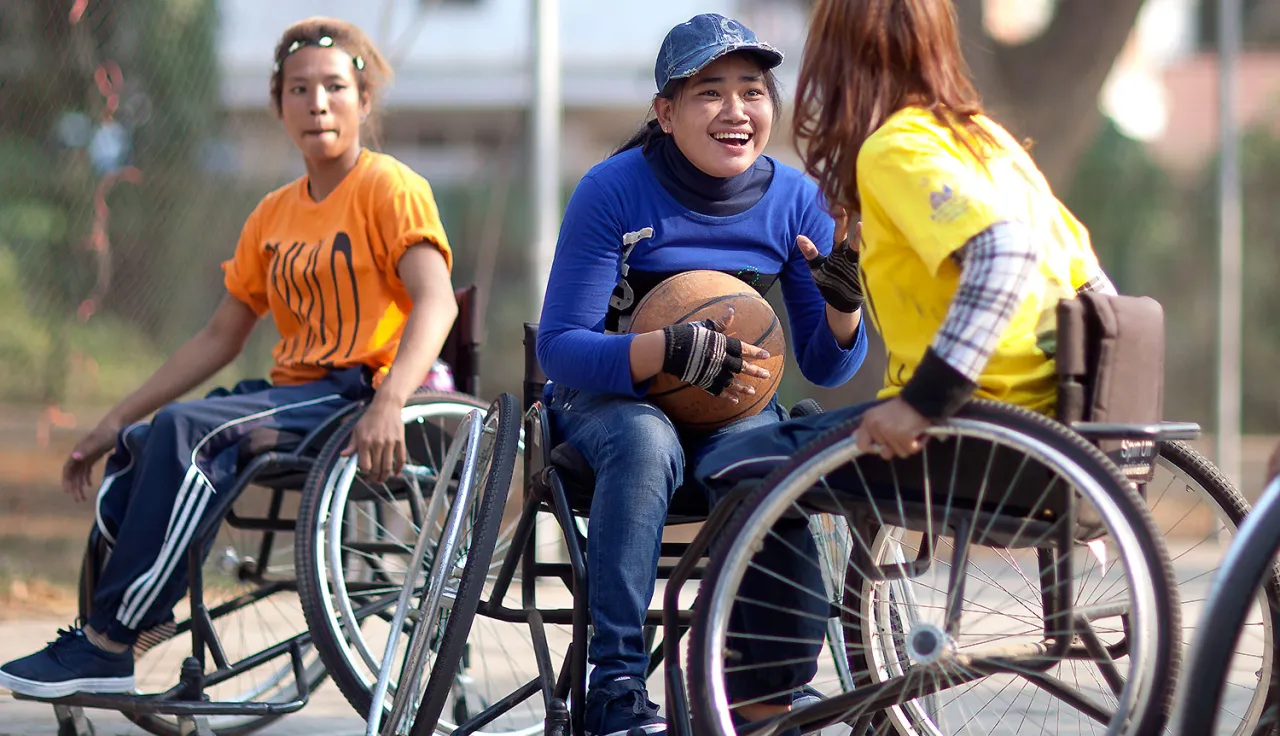"We want the ICRC to use our contribution where it is most needed"

"Previously people saw only my disability and thought that I was worthless," says Los Nimal, a 33-year-old single mother from Cambodia, who became disabled after stepping on a mine. Ms Nimal is one of an estimated 150,000 disabled people in Cambodia, many of them suffering from the deadly conflicts which ravaged the country from 1969 to 1999.
A physical and social rehabilitation programme has provided Ms Nimal with the means to escape her isolation. Today she is a proud member of the wheelchair basketball team and an advocate for the rights of people with disabilities. Ms Nimal has benefited from this rehabilitation programme run by the ICRC with support of the MINE-EX Foundation of the Rotary Club of Switzerland and Liechtenstein. For more than a decade, the programme has helped thousands of disabled people in Cambodia and Afghanistan.
Foundation support
The first of October 2015 is European Foundation Day, when public benefit foundations all over Europe will highlight their work and promote the idea of philanthropy. Foundations typically have a long-term commitment to the goals set by their founders and a particular concern for the most vulnerable members of society. Such foundations can therefore be key partners for the ICRC. Foundation support, such as that of MINE-EX for Cambodia and Afghanistan, allows the ICRC to assist victims of past and forgotten armed conflicts, to build capacities of national partners and to launch new and innovative projects.
"We have supported the ICRC every year since the beginning of our foundation," explains Ms Stephany Malquarti, Secretary-General of the Fondation de bienfaisance du groupe Pictet, "and we plan to continue doing so, especially considering the state of the world today. The ICRC is the reference for humanitarian aid. We share the same values and we appreciate the impartial and neutral approach. Our foundation contribution is not attributed to any single programme because we want the ICRC to use the assistance where it is most needed and to keep its administrative costs low."
Faced with the growing humanitarian needs triggered by complex and protracted violent conflicts in the Middle East, Africa and elsewhere, the ICRC will probably have to dip into its financial reserves to cover its 2015 record budget of 1.6 billion CHF. To offset that move but to continue fulfilling its unique humanitarian mission in 2015 and beyond, the ICRC seeks to enlarge its circle of partners and donors. Long-term partnerships with foundations play an important role in this strategy.
"Foundations understand our unique approach and they are ready to support us in assisting the most vulnerable people affected by armed conflicts, anywhere in the world," explains Vice-President of the ICRC Ms Christine Beerli. In Syria, for example, the ICRC is among the very few humanitarian organizations that can still access most areas, owing to its impartial and neutral approach and its cooperation with the Syrian Red Crescent Society.
The partnership of the ICRC and foundations can focus on a specific programme, such as the MINE-EX Foundation cooperation targeting mine victims in Cambodia and Afghanistan; or the partnership can provide a global scope, as in the case of the Fondation de bienfaisance du groupe Pictet. Other partnerships can offer a thematic focus, such as the cooperation with the Philips Foundation, dealing with health in fragile environments, and the cooperation with the Fondation Lombard Odier, concerning humanitarian innovation.
Living with a disability
Back in Cambodia, while tenderly embracing her baby, Los Nimal insists, "You have to tell people that being disabled is not an obstacle and that disabled people can do everything that other people can do."
Watch the story of Ms Nimal in the video: Wheelchair-basketball: Changing lives in Cambodia.



